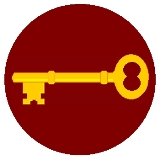Semantic ENrichment Enabling Sustainability of arCHAeological Links
Origin ME: from OFr., from med. L seniscalus, from a Gmc compound of words meaning ‘old’ and ‘servant’.(From Concise Oxford English Dictionary, 10th edition, Oxford University Press. ed. Pearsall, J. ISBN 0-19-860572-2)

SENESCHAL was an AHRC funded project led by the University of South Wales Hypermedia Research Group in collaboration with the Archaeology Data Service and project partners, Bespoke HER User Group, Historic England, RCAHMS, RCAHMW, Wessex Archaeology.
SENESCHAL was a one year Knowledge Exchange project based on enhanced vocabulary services that aimed to make it significantly easier for vocabulary providers to make their vocabularies available as Linked Data and for users to index their data with uniquely identified (machine readable) controlled terminology that is semantically enriched and compatible with Linked Data. The project built on outcomes and tools from the previous AHRC funded STAR and STELLAR projects. Doug Tudhope was PI and Ceri Binding was the Research Fellow on the project.
Background
While the STAR and STELLAR research objectives were met, we encountered a lack of vocabulary control (with unique identifiers) that hindered the full potential of the resulting Linked Data. Although STELLAR tools were capable of generating controlled types, the resulting linked data employed free text strings.
Thus the resulting linked data were not connected to other data via thesauri. This acted as a break on the impact of semantic technologies. Major thesauri acted as informal standards but lacked the unique identifiers that would allow them to act as vocabulary hubs for the Web of Data.
Aims
- Knowledge Exchange based on enhanced vocabulary services
- Make it significantly easier for data providers to index their data with uniquely identified (machine readable) controlled terminology
- Make it easier for vocabulary providers to make their vocabularies available as Linked Data
Objectives
- Widening access to key vocabulary resources. Making these resources more openly accessible as Linked Data would encourage wider adoption of standard terminology and would engender useful community feedback on possible improvements to the vocabularies.
- Improving the consistency of existing metadata. This would be achieved by exemplar bulk semantic enrichment operations to align legacy datasets with controlled vocabulary resources for Linked Data.
- Improving the consistency of future metadata. Better integration of controlled vocabulary resources in the data creation workflow would be facilitated via web services and interface widgets generating unique identifiers for Linked Data .
SENESCHAL was funded by the Arts & Humanities Research Council
